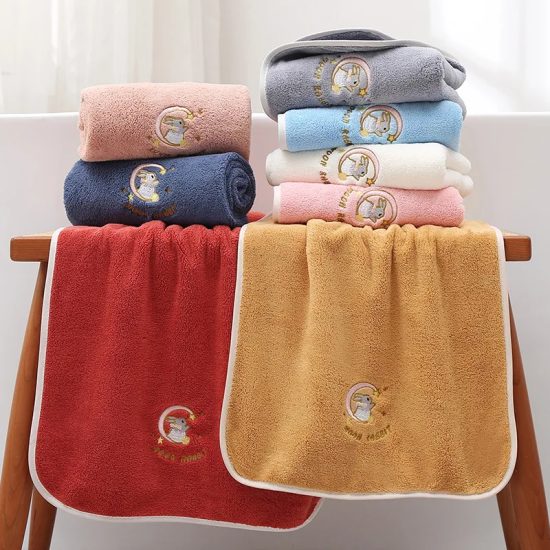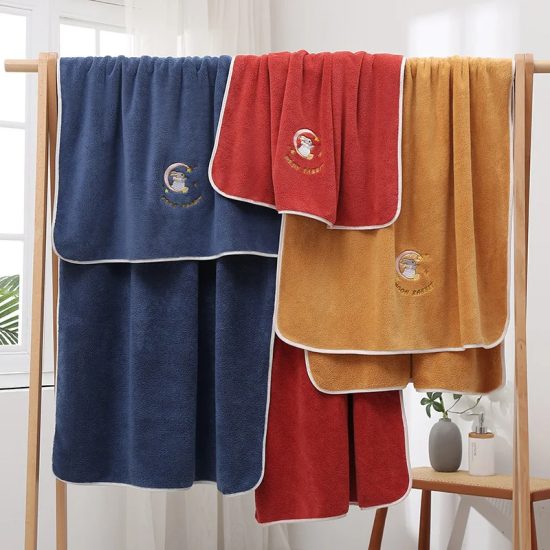In a world increasingly mindful of environmental impact, the textile industry is embracing eco-friendly practices to create terry towels that not only provide comfort but also prioritize sustainability. Let’s explore the innovative strides taken in manufacturing eco-friendly terry towels, ensuring a more sustainable future.
- Organic and Sustainable Materials: The shift toward sustainability begins with the materials used. Manufacturers are turning to organic cotton, which is grown without synthetic pesticides or fertilizers, reducing environmental harm and promoting soil health. Additionally, bamboo-derived fibers, known for their rapid growth and minimal water requirements, are becoming popular alternatives.
- Water and Energy Conservation: Sustainable manufacturing involves reducing water and energy consumption. Advanced technologies optimize water usage in the production process, employing efficient dyeing methods and recycling water. Energy-saving measures, such as using renewable energy sources and implementing more efficient machinery, further reduce the environmental footprint.
- Chemical-Free Production: Minimizing the use of harmful chemicals is a key aspect of eco-friendly towel manufacturing. Processes like natural dyeing techniques and eco-friendly treatments eliminate the use of toxic substances, ensuring that the towels are safe for both consumers and the environment.
- Recycled Materials and Upcycling: Embracing circular economy principles, some manufacturers incorporate recycled materials into their towel production. Utilizing post-consumer recycled cotton or polyester reduces waste and lessens the demand for virgin resources. Additionally, upcycling methods creatively repurpose textile waste into new towel products.
- Certifications and Standards: Towel manufacturers are increasingly seeking certifications like Global Organic Textile Standard (GOTS) and OEKO-TEX® Standard 100, which ensure that the towels meet stringent environmental and social criteria throughout the production chain. These certifications provide assurance of eco-friendly practices and ethical manufacturing.
- Longevity and Durability: Promoting durability through quality craftsmanship contributes to sustainability. Towels designed to withstand frequent use and multiple washes reduce the need for frequent replacements, extending the product’s lifecycle and minimizing waste.
- Packaging and Transportation: Sustainable practices extend beyond production to packaging and transportation. Manufacturers are opting for biodegradable or recyclable packaging materials and employing efficient transportation methods to reduce carbon emissions.
The commitment to eco-friendly practices in terry towel manufacturing reflects a dedication to reducing the industry’s environmental impact. Consumers increasingly seek towels that align with their values, prompting manufacturers to innovate and adapt, ensuring that sustainability becomes an integral part of their ethos.
By choosing eco-friendly terry towels, consumers contribute to a more sustainable future. Each purchase becomes a conscious decision to support environmentally responsible practices, encouraging further advancements in sustainable manufacturing within the textile industry.
In conclusion, the evolution towards eco-friendly terry towels embodies a harmonious blend of innovation and environmental consciousness. By prioritizing sustainable materials, efficient production processes, and responsible practices, manufacturers pave the way for a more eco-conscious future, one soft and absorbent towel at a time.


